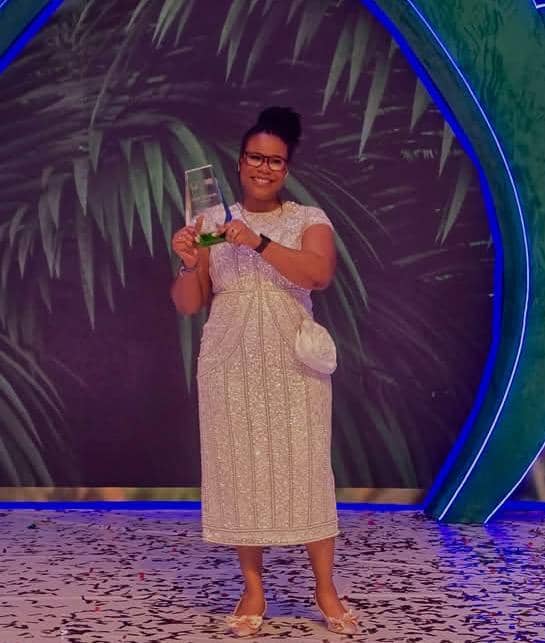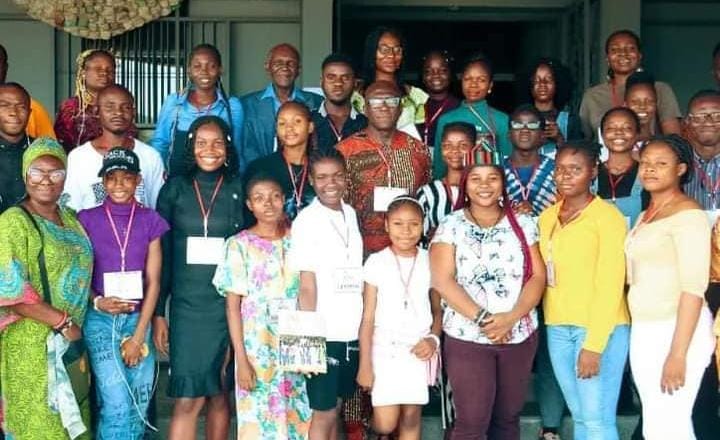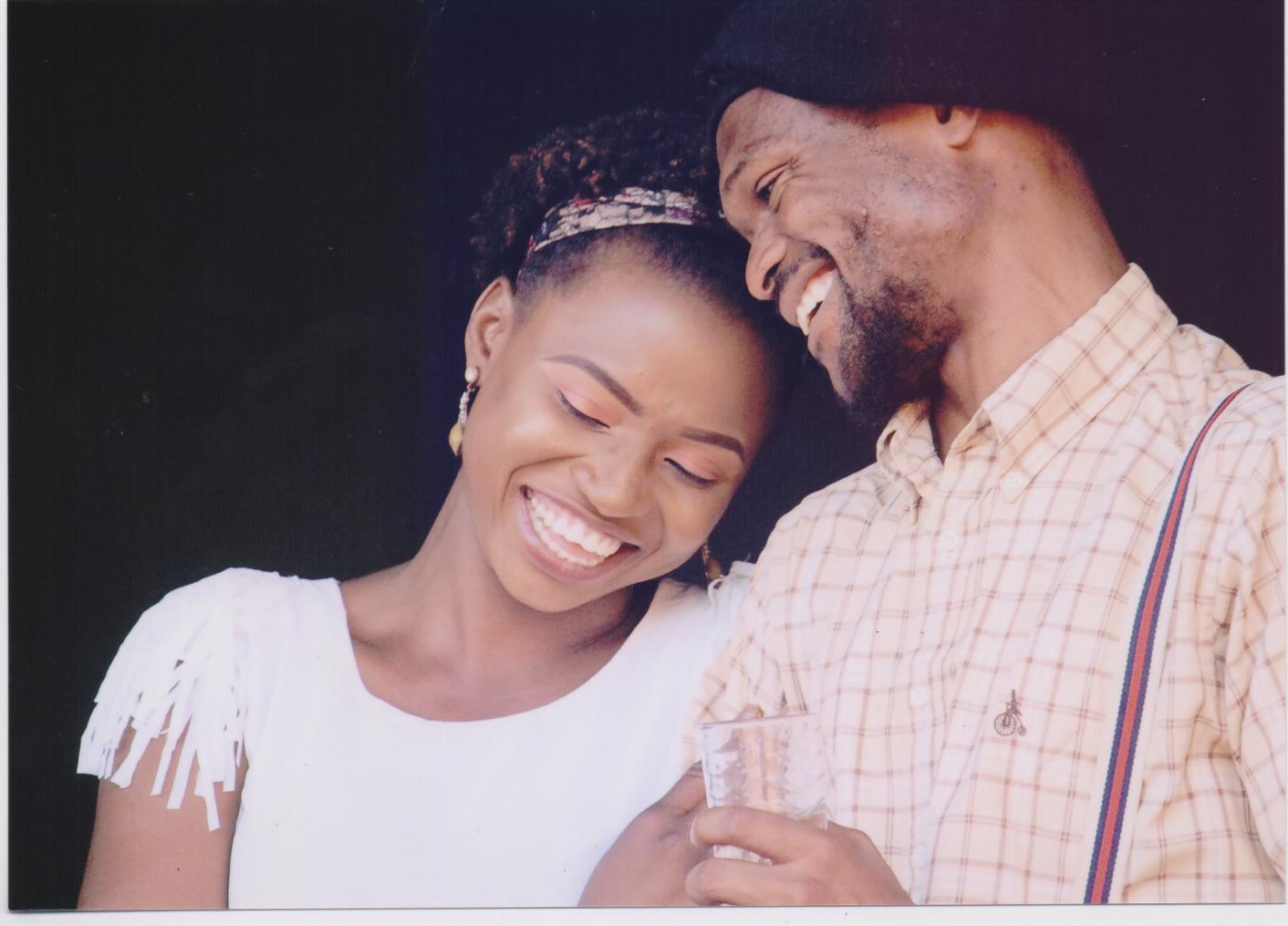Oyin, ‘Sànyà’ and the USD$100,000 prize

‘Stories choose us before we ever learn to name them. Sànyà began as a whisper, and today, it sings back through this recognition,’ -Oyin Olugbile
By Simbo Olorunfemi
THE first time I got to know about Oyin Olugbile and her book, Sànyà, which last week won the highly-coveted Nigeria Prize for Literature for 2025 was in May, 2023 on ‘Funlola’s page.
Apparently, Funlola and Oyin are cousins. In that post of 2023, Funlola, full of joy in announcing that Oyin had just become a published Author.
I found the title, Sànyà, quite intriguing. I was particularly taken by the cover, and made that point in a comment. Little did I know that the Author and the book will make history two years later.
In fact, I completely forgot about the book until earlier this year when the longlist for this year’s Prize was announced.
My initial point of excitement was that Michael Afenfia (Leave My Bones in Sanskatoon), whom we published his first book over 10 years ago made the list. Then, I saw Sànyà. Funlola will not only share the news but boldly proclaim that her Sister was going to win the prize.
Michael didn’t make the shortlist, so I began to root for Oyin, for Funlola’s sake.
For some reasons, I lost track of the event, not helped by my increased disinterest in the ceremony in the manner it is presently organised. I had taken time to advise on how to make it more writers-centric and inclusive, but NLNG is obviously not keen to reimagine the Prize and the ceremony, at least, at this moment. But that is okay.
It was only fitting that it is through Funlola that I would receive the news that Oyin had won. I quickly tracked back online to see as the moment unfolded. I was almost in tears, watching her every step, imagining her journey to this point, and how this win has transformed her life.
Then, her acceptance speech. One of the best I have ever heard. Obviously prepared ahead, it was thoughful and poignant. She captured the moment in words that struck deep, speaking to me in a manner that was easy for me to relate with.
I saw a dream come true in a manner she might have seen when she received the inspiration, but might have found difficult to convey to others. I thought I saw her seeing that prize as a validation of that dream only she fully understood at the time.
That, perhaps, is where some of those who expressed surprise at her win over a supposedly more renowned writer miss the point. The prize is not primarily for the writer, it is for the book!
If you understand that the prize is for the book, then you will understand how off-the-point the argument that her book can be adjudged winner over the book by another writer, simply on account of his pedigree, is.

Oyin Olugbile displaying her prize trophy
”Wait o! I am trying to imagine a scenario in which Oyin Olugbile’s book, Sanya, would beat Chigozie Obioma’s The Road to the Country to win the coveted $100,000 prize. I will have to read both books, lol. Na wa!”
That was Mr. Ikhide Ikheloa. My first thought on reading that was that he was just playing around as he often does, but I was shocked to see that some of the comments that followed his, echoed this same thought, strange as it is.
“I have criticized Obioma in the past, but in terms of mastery of craft, I don’t know anyone who has the stature of Obioma, bar none, that dude is a writer’s writer, with global cred,” Mr. Ikheloa says.
In other words,on account of Obioma’s mastery of the craft and ‘global cred’, whatever book he writes must be acknowledged better than any other, just because he is Obioma! Strange! The judges shouldn’t even bother reading the books. All they need do is compile the Authors list and once Obioma is there, hand him the prize!
Well, it just happens that Mr. Ikheloa and others further argue that “Obioma should never have entered for the prize. Not sure why he applied for the prize. It’s quite beneath him, to be honest. That would be like Adichie applying for the prize. Maka why?”
At this point, I don’t know which is stranger between the first and second arguments. Some Nigerians are bigger than the Nigerian Prize for Literature?! Maka why? How? I read somewhere that Adichie had submitted an entry in the past. I don’t know. But that is even beside the point. What makes the Prize beneath any Nigerian writer, perhaps outside the Nobel Prize laureate? What is it?
I don’t get the point.
Again, the prize is primarily for the Book. The Writer’s pedigree is secondary. That one is a great writer doesn’t come with the guarantee of consistently delivering great books. An unknown writer can come up with a great book that will, in the opinion of many, turn out a ‘winner’ over the book by a supposed master of the craft. I didn’t think that should be so difficult to understand.
It reminds me of the year my book, Eko Ree, was announced winner of the ANA/Cadbury Prize. One fellow took to pages of newspapers to make a similar argument – How could a Simbo Olorunfemi have beaten a Chijioke to the prize? After all, Simbo who had been nominated for the same prize 10 years before was an unknown quantity in comparison with the other man?
Many years later, the man who lost out was still so bitter, even insinuating that Judges might have been bribed! To think that I was not aware of the nomination and only got to know about the win hours after!
I don’t know how people get to the point where they develop a sense of entitlement over these things. Even stranger is the assumption that one writer is better than the other that we don’t have to read the books to come to a judgement over which is ‘better’, if there is such a thing.
I don’t believe in these competitions anyway. I believe that every Writer has his or her strengths and weaknesses, and that what will appeal to one set of readers might not appeal to the other. I believe that what is more important for the writer is to find his voice and stay true to it.
I hear some people write with an eye for the prize. Well, if that works for them, that is great. But I believe that the best books are ‘received’ by writers. There is a completeness that comes with its theme, style and timing of its release that just makes it right. I believe that there is more to winning than just being a master of the craft.
I have not read Sànyà, but I have seen positive reviews. I read her interview with one of the newspapers and listened to her share the backstory that saw to the birth of her book on TV. For some reason, I find it easy to relate to her story. I believe that the book itself is a story. A great and inspiring story of trusting your dream, running with it and seeing it come true.
It is sad to see the side talks from quarters one would not expect such to come from. I might be wrong on that though, with all that we have seen in the last few years. The Judges must have seen Sànyà an outstanding work to name it the winner of the prize. It is not everyday that a Writer’s first book goes all the way to winning the USD$100,000 The Nigerian Prize for Literature.
Congratulations, Oyinda!
* Olorunfemi is a writer and public affairs analyst




